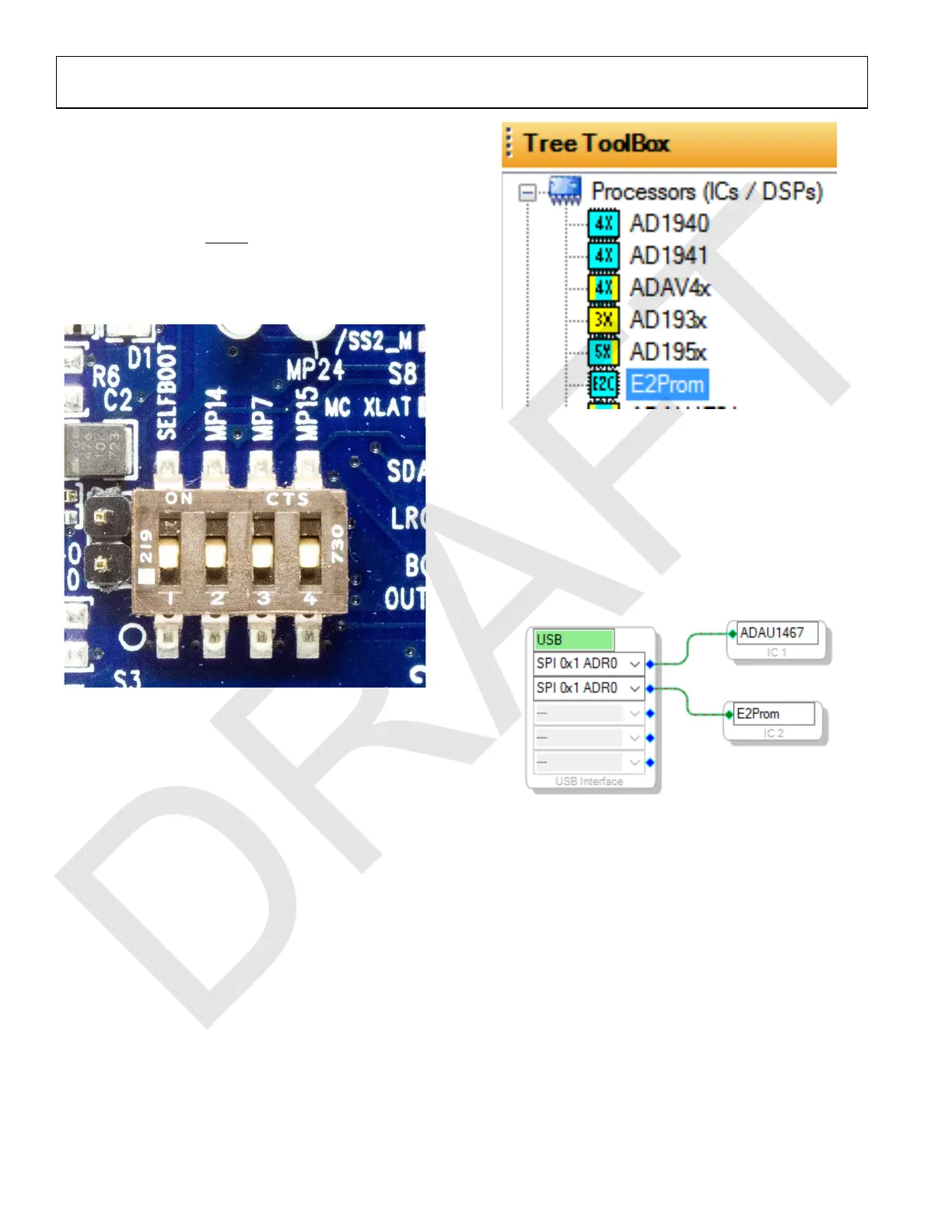UG-1134 EVAL-ADAU1467Z
Rev. A (Draft) | Page 26 of 55
SELF BOOT
A 1 Mb, 20 MHz, SPI, serial EEPROM memory is included on
the EVAL -ADAU1467Z evaluation board. The ADAU1467 is
capable of booting and executing a program without help from an
external microcontroller. This feature allows any project developed
within SigmaStudio to execute when the ADAU1467 powers up
or on a rising edge of the
RESET
pin. Position 1 of Switch S3
switch, the top position of the DIP switch (see Figure 76), sets
the state of the SELFBOOT pin of the ADAU1467, which
determines whether a self boot operation occurs.
Figure 76. Self Boot Slide Switch
To use the self boot functionality, take the following steps:
1. Add an E2Prom block to the project space of the Hardware
Configuration tab. From the Processors (ICs/DSPs) folder,
click E2Prom (see Figure 77) and drag it into the project
space to the right of the toolbox.
Figure 77. E2Prom IC Selection in SigmaStudio
2. Connect the green input pin of the E2Prom IC to one of
the available blue output pins of the USB Interface block.
3. Set the communication mode to SPI 0x1 ADR0 (see
Figure 78). (There is no physical connection between
the USBi connector and the EEPROM on the EVA L -
ADAU1467Z. SigmaStudio writes a small program to the
ADAU1467, which then writes the self boot data from the
master SPI port to the EEPROM.)
Figure 78. E2Prom Setup in the Hardware Configuration Tab
4. Before downloading the self boot data to the EEPROM, click
the Link-Compile-Download button (see Figure 24) or
press F7 to compile the SigmaStudio project file.
5. When writing to the EEPROM, set the self boot switch
(Position 1 of Switch S3) to the disabled position.
6. Right click the empty white space in the ADAU1467 IC
block in the Hardware Configuration tab of SigmaStudio.
From the menu that appears, select Self-boot Memory, then
Write Latest Compilation through DSP (see Figure 79).
